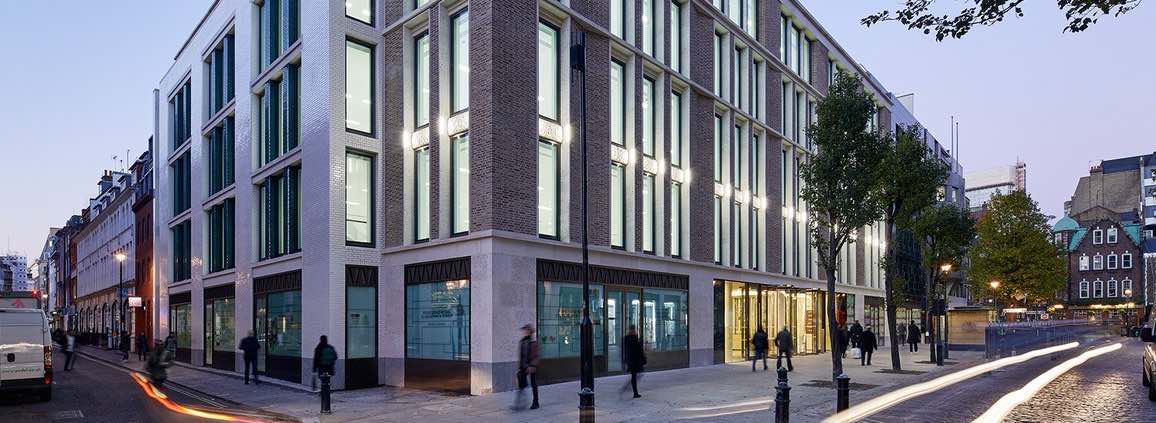GKRE, a UK based flexible workspace specialist, could be a kind of new operator in the market: a matchmaker between real estate owners, on the one hand, coworking and flexible workplace operators, on the other hand. GKRE advises landlords and building owners throughout the UK on their flexible workspace options and opportunities to partner with flexible workspace providers. The company has recently been involved in the merger and acquisition of businesses worth over GBP 40 million, in some 50 buildings.

Will Kinnear
We interviewed Will Kinnear, Chartered Surveyor specialising in the flexible workspace industry.
Hi Will, could you introduce yourself and tell us about GKRE?
I started as a consultant to Regus acquiring multiple sites throughout the UK on their behalf. Since the creation of GKRE with Douglas Green in 2013, we have acquired more than 450.000 square feet (42.000 m2) of new sites for the UK’s leading operators throughout London and the UK. Clients include operators and landlords across the UK, from major PLCs to independent companies.
The flexible workspace market has grown fast in the last recent years. What are the reasons for this growth, according to you?
The growth of the market has been driven by a number of factors: the demand from occupiers for more flexible ways of working; technology in the form of laptops and mobile phones allowing people to work from anywhere; the explosion of small businesses and freelancers. Traditionally, flexible workspace operators were quick to seize on the demand for flexibility and, by offering something alternative to the traditional leasing model, grew their portfolio of sites steadily on the back of this. In the past three to four years, flexible ways of working have become commonplace for SMEs and even corporates, who have looked to operators to provide them with workspaces that meet their growing demand for dynamic and flexible ways of working. This, in turn, has driven operators and property owners to expand their offerings exponentially to the extent that the flexible workspace sector is no longer a secondary sector in the property market.
In the past three to four years, flexible ways of working have become commonplace for SMEs and even corporates.
How do property owners look at the flexible model of space renting? Do they come to you? If so, why?
Property owners have had to look at the product being offered by operators given that demand for flexible working from occupiers has continued to grow. We are actively being approached by landlords and developers who want to understand better how the model works and how they can make the most of this growing trend. This is challenging the way property owners look at what they offer tenants.
Would you say that commercial property owners are starting to consider to partner up with flexible workspace operators, the same way property owners deal with hotel chains?
Yes, they are. Historically, flexible workspace operators have been at the forefront of this growing sector. However, over the past two years, there has been a distinct increase in property owners and developers wanting to enter the sector. Flexible workspace operators traditionally have taken lease deals where they have control over the space within a building and their clients. Partnership and management agreements between property owners and operators have allowed property owners to share in the upside and desirability of the sector while leaving the operator to the day-to-day running of the centre. We are currently working with a number of property owners who are considering their options. These may include working with an operator on a partnership basis or running their own operation.
Partnership and management agreements between property owners and operators have allowed property owners to share in the upside and desirability of the sector while leaving the operator to the day-to-day running of the centre.
Is the shared revenue model the future, in this kind of partnership?
It may be in some circumstances. Some property owners have assets within a portfolio that simply aren’t set up to enter into a shared revenue model. They will, therefore, have to let space on a traditional basis to an operator so that they are able to fulfil any requirement they have to provide flexible workspace within their mix of properties. They can also, of course, choose to run their own operation under their own brand. The shared revenue model will be attractive to both property owners and operators in some locations where both parties see a mutual benefit to providing a flexible workspace product. Going forward, we see opportunities for all kinds of models including leasehold, freehold and partnerships arrangements. We expect plenty of variety throughout the UK, and the model chosen will be driven to a large extent by the location, the property owner’s view of the market and the operator’s desire for a foothold in a particular area.
The model chosen will be driven to a large extent by the location, the property owner’s view of the market and the operator’s desire for a foothold in a particular area.
Some real estate owners fear that partnering with flexible workspace operators means they will lose direct contact with their traditional tenant customers. On the longer term, it could be detrimental to them, as they will be reliant on the flexible operator. Are they right?
This is a genuine concern for some owners as the end user will usually only have day-to-day contact and dialogue with the operator. To get round this and retain control of and connection with the end user, several property owners are looking to run their own operations, or, partner with operators but run the centres under their own brand.
Would you recommend property owners to create their own flexible workspace customer brand?
Possibly, but in every case, we would look at a property owner’s requirements in order to give them the best possible advice. Depending on what product they want to provide, the levels of service make these operations highly management intensive and for this reason not every property owner has the setup or desire to do it themselves. In these instances, we will work with a property owner to ascertain what options are available to them access the flexible workspace market.
Business Centres, Coworking, startup-friendly environment… How do you deal with the different services and positioning in today’s market?
Every operator thinks of their business in a different way and will position their product in the way that they best think sells it to potential occupiers. Often, an operator will offer a blend of options within a centre in order to maximise revenue.
What are your real estate predictions for the flexible workspace market in the UK the next five years?
We believe the market will continue its excellent growth. We expect to see more property owner-based operations in the market along with more all-inclusive managed products as landlords offer further flexibility in order to meet what occupiers are looking for. The new accounting rules coming into force in January next year are already impacting on demand as companies seek to take long-term leasehold premises off their balance sheets. We also expect to see retail and corporate occupiers offering flexible space. Industry data suggests that flexible workspace could account for 10% of the occupier market within 10 years across the UK.
Industry data suggests that flexible workspace could account for 10% of the occupier market within 10 years across the UK.
Join Coworking Europe Conference for more insights, data and connections!


